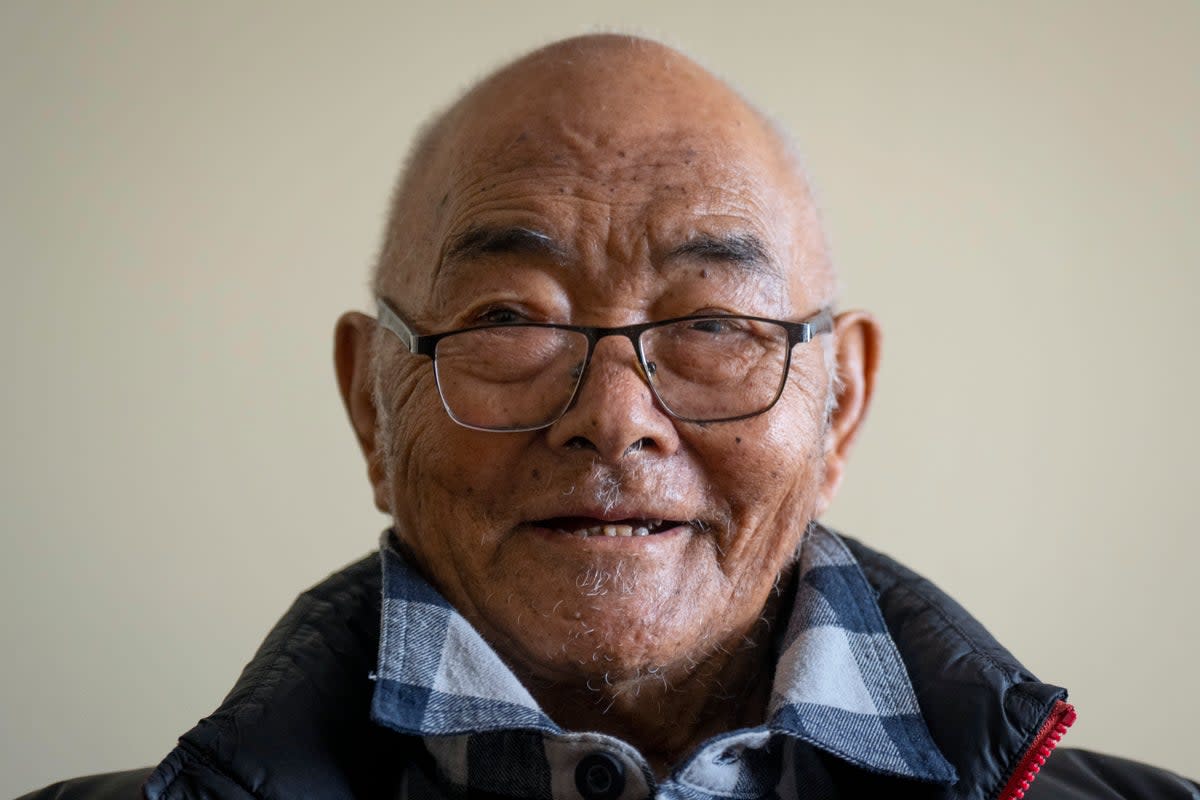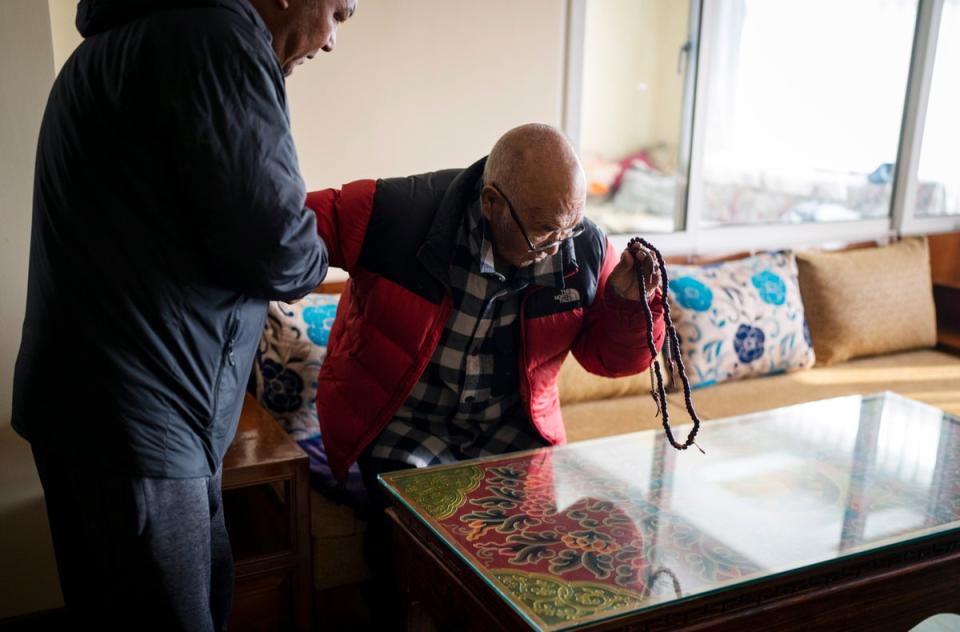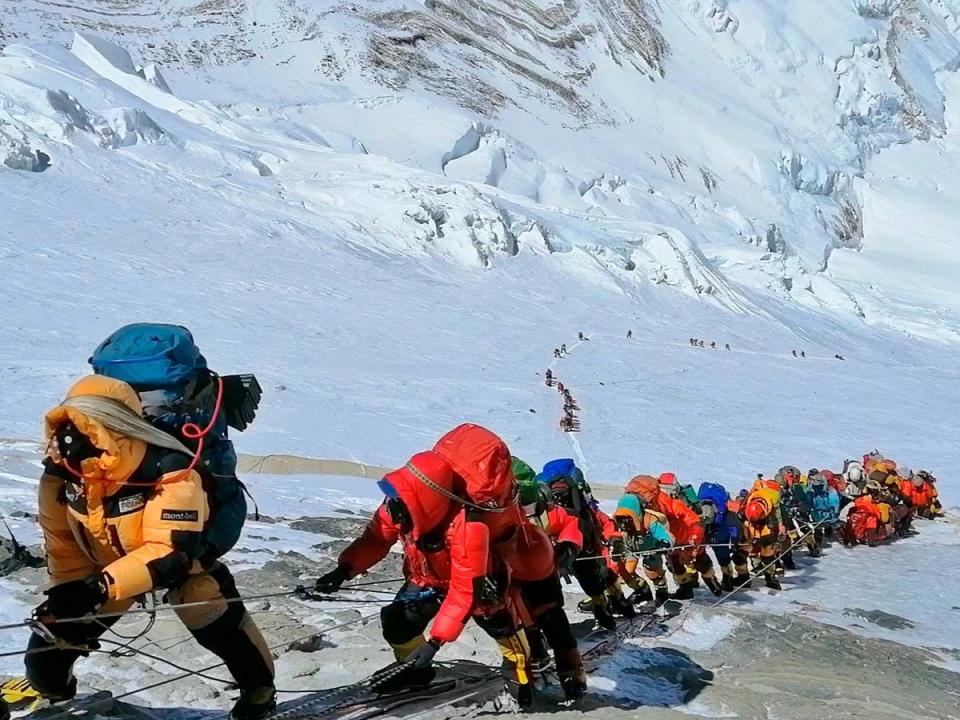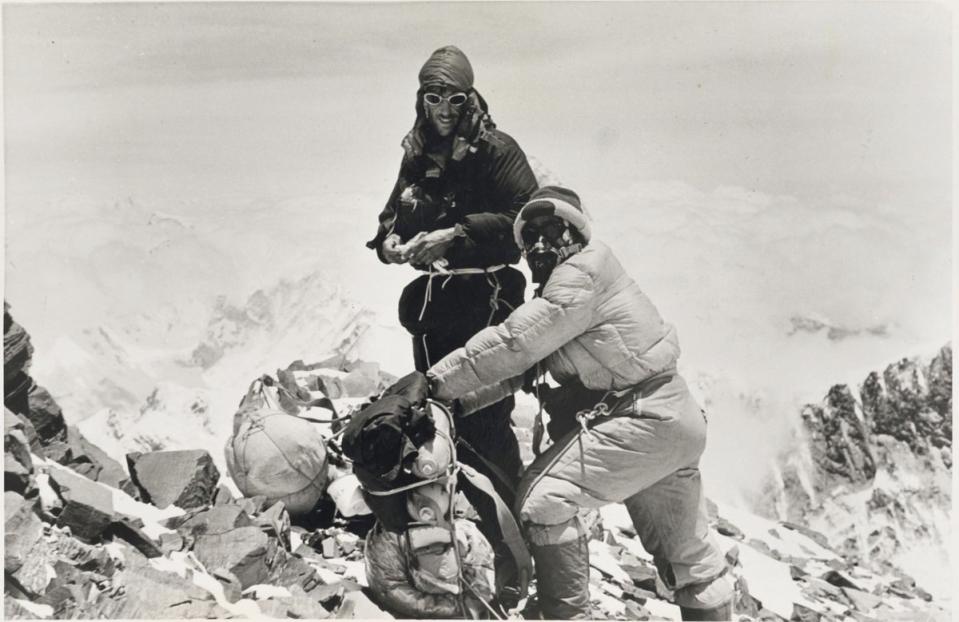Last surviving member of first team to scale Everest bemoans state of mountain today

- Oops!Something went wrong.Please try again later.
- Oops!Something went wrong.Please try again later.
The last surviving member of the first team that scaled Mount Everest has lamented how the world’s highest peak has become dirty and overcrowded.
Kanchha Sherpa, 91, is the only surviving member of the 1953 British Expedition’s Sherpa team that helped New Zealander Sir Edmund Hillary and his Sherpa guide Tenzing Norgay to the top of the mountain.
Since then the mountain peak has been scaled by more than six thousand people with the authorities issuing a record number of permits – 478 – for last year’s climbing season.
Mr Kanchha urged climbers and tour operators to reduce the number of permits given and protect the mountain peak that his people consider as their god.
"It would be better for the mountain to reduce the number of climbers,” he told the Associated Press. "Right now there is always a big crowd of people at the summit."
He was just 19 years old when Everest was first climbed on 29 May 1953, a time when the clothing and climbing equipment used were nothing like today and the expedition team did not even have radios to communicate in real time.
Climbers today carry a range of specialist equipment, some of which is left behind on the mountain – alongside the human waste produced by the mountaineers themselves.
Oercrowding at the ecologically sensitive peak has sparked concerns from the mountaineering experts who say it will disturb the balance of the region.
In efforts to crack down on the waste left behind by mountaineers, new regulations have made it mandatory for climbers to bring their excreta back to base camp in poo bags after summiting the world’s tallest mountain.
During the spring climbing season last year, 667 climbers scaled the peak, bringing with them thousands of support staff to the base camp between the months of March and May.

While there are regulations that mandate climbers must descend with all their rubbish, gear and personal belongings from the mountain or face the forfeiture of their deposit, the oversight and enforcement of these rules have proven to be inadequate.
"It is very dirty now. People throw tins and wrappings after eating food. Who is going to pick them up now?” said Mr Kanchha, who lives in the Namche village in the foothills of Mount Everest.
"Some climbers just dump their trash in the crevasse, which would be hidden at that time but eventually it will flow down to base camp as the snow melts and carries them downward."
Mr Kanchha said that for his people Everest is known as Qomolangma, a local Tibetan name, meaning "Goddess Mother of the World”.

"They should not be dirtying the mountain. It is our biggest god and they should not be dirtying the gods," he said.
"Qomolangma is the biggest god for the Sherpas but people smoke and eat meat and throw them on the mountain."
Mr Kanchha was among the three Sherpas to go the last camp on Everest along with Sir Edmund and Tenzing. They could not go any further because they did not have a permit.

When Hillary and Tenzing summited, Mr Kanchha stayed in Camp 2. “There was no radio, so we were waiting and waiting. When they came down, everyone was hugging and cheering,” he told National Geographic.
Climbers continue to use the route they established from the base camp to the summit. However, the portion spanning from the base camp to Camp 1, crossing the unstable Khumbu Icefall, undergoes annual alterations.
"We all gathered at Camp 2 but there was no alcohol so we celebrated with tea and snacks," he said. "We then collected whatever we could and carried it to base camp."

